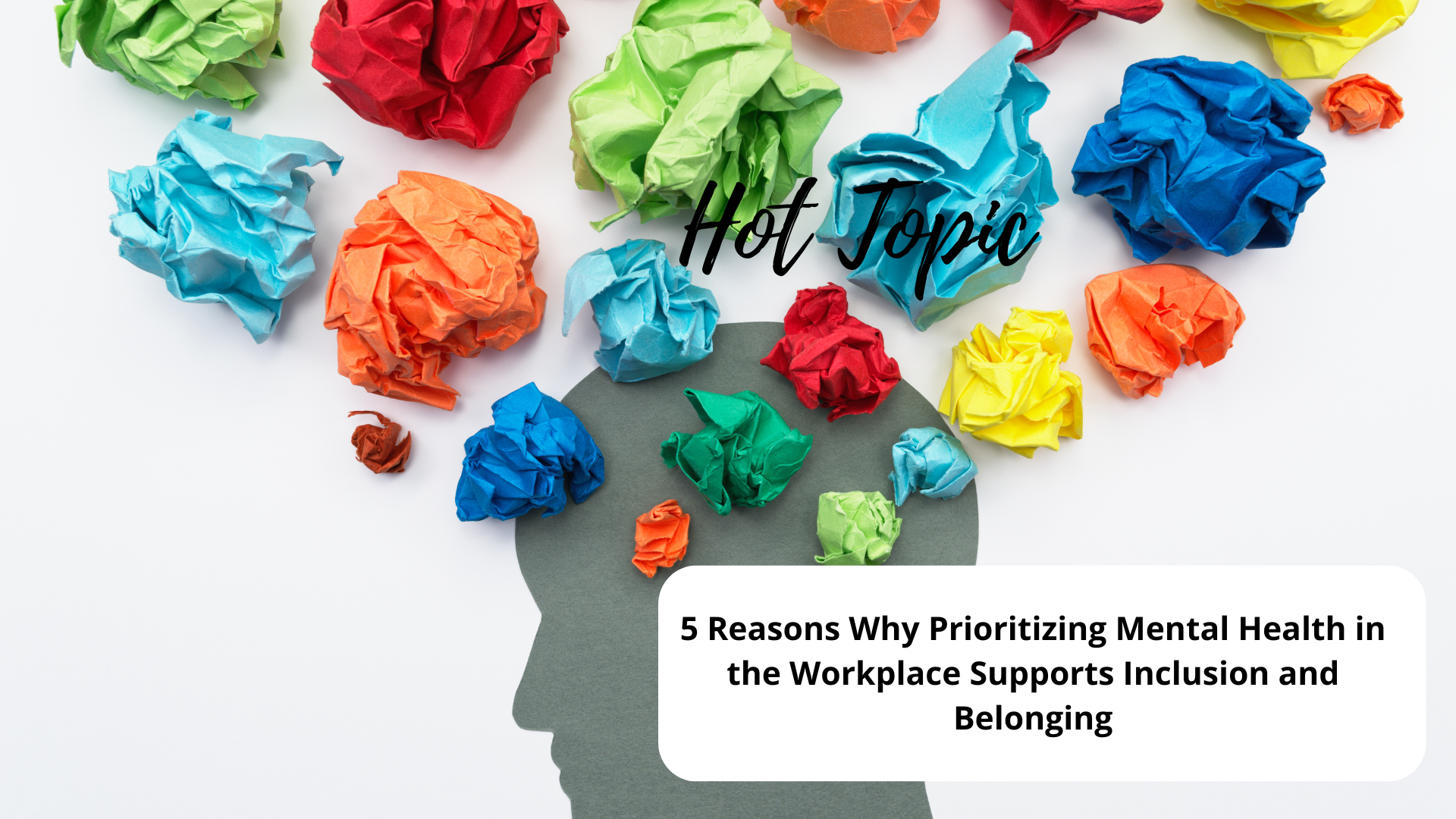Despite the growing acknowledgment of mental health issues, the topic remains delicate at work. Employees often hesitate to bring up their challenges due to stigma and fear of being perceived as weak or unreliable. This reluctance perpetuates a culture that lacks inclusion and belonging.
However, by prioritizing mental health, organizations can cultivate an environment where employees feel empowered to express their needs, access resources, and contribute meaningfully. Here are five key reasons why prioritizing mental health is crucial for fostering inclusion and belonging in the workplace:
🌟 Reason 1: Reduces Stigma
Promoting mental health awareness helps reduce stigma, making it easier for employees to seek support without fear of judgment. This normalization fosters inclusion and belonging by demonstrating that mental health challenges are valid and should be addressed.
🌟 Reason 2: Enhances Employee Engagement
When employees feel their mental health is prioritized, they are more likely to be engaged at work. This sense of value strengthens their connection to the organization and builds a culture of belonging.
🌟 Reason 3: Improves Team Collaboration
A supportive work environment reduces stress and anxiety, enabling employees to communicate and collaborate more effectively. Promoting mental health ensures that diverse teams work together harmoniously, enhancing inclusion and belonging.
🌟 Reason 4: Supports Diverse Needs
Mental health is experienced differently based on backgrounds and lived experiences. Prioritizing mental health respects these diverse needs, making every team member feel included and acknowledged.
🌟 Reason 5: Boosts Organizational Resilience
A workforce that is mentally healthy is more adaptable and resilient. Creating a psychologically safe environment makes employees feel confident and helps them navigate changes while staying connected and inclusive.
Actionable Strategies to Integrate Mental Health
To turn awareness into impactful initiatives, HR and DEI practitioners can play a vital role in integrating mental health support across the organization. Here are five actions they can take:
-
📢 Communicate Openly: Share resources and promote an open dialogue around mental health to help normalize these conversations. Clear communication builds trust and reinforces that seeking help is encouraged.
-
📊 Conduct Mental Health Surveys: Regularly assess the mental health climate within the organization through anonymous surveys. Use this data to understand needs and create tailored programs that foster inclusion and belonging.
-
🏢 Create Safe Spaces: Designate private, inclusive areas where employees can take a mental health break or discuss challenges with trained counselors or peer support groups.
-
📝 Review Workplace Policies: Audit existing policies to ensure they support mental health inclusivity, like flexible working hours, generous leave, and comprehensive mental health benefits.
-
💡 Provide Training: Train managers and colleagues to recognize mental health challenges, respond empathetically, and refer team members to appropriate resources. Create a culture where inclusivity is practiced at every level.
Empowering Organizations
Mental health is a cornerstone of a resilient and inclusive workplace. When HR and DEI professionals prioritize it through supportive practices, they pave the way for a compassionate culture that normalizes open conversations. This breaks down stigmas, fosters mutual respect, and encourages employees to seek help when needed.
By actively addressing mental health concerns, organizations demonstrate their commitment to each individual’s well-being, resulting in improved productivity and loyalty. Building inclusive workplaces where mental health is valued and supported leads to greater collaboration, stronger employee engagement, and a sense of belonging that drives long-term success.








